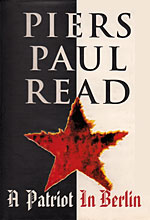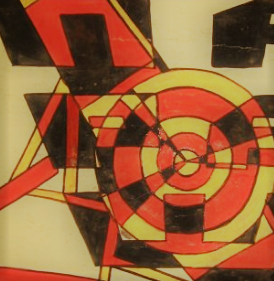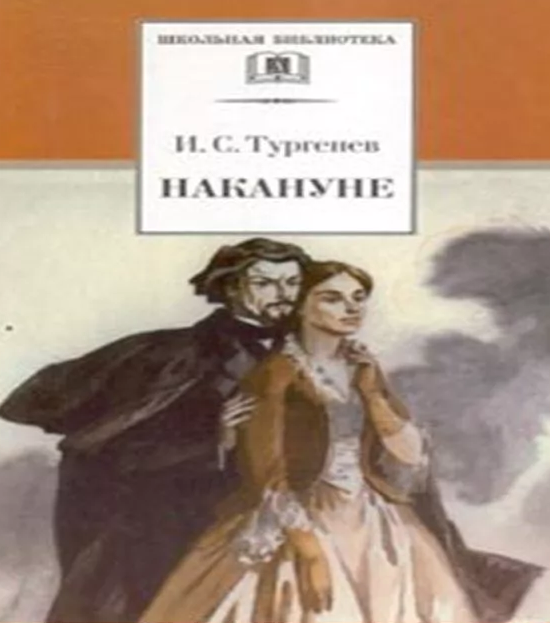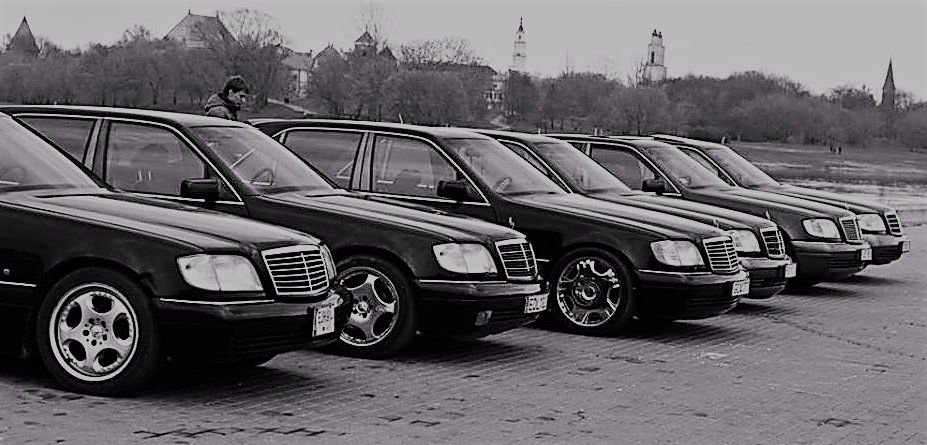Part two of this review is here

A Patriot in Berlin is a novel of the collapse of Communism. It is set in the immediate aftermath of the break-up of the Soviet Union, between August 1991 and July 1993. In other words, in that strange period of suspended political time, between Boris Yeltsin emerging as the victor in Russia after the attempted coup of August 1991 and his eventual victory over the last of the old Soviet-era parliament’s resistance in October 1993.
As is to be expected from its author, A Patriot in Berlin has literary substance. It addresses the questions that this startling and unexpected moment in modern history throws up, dealing with themes of nationalism, materialism, and Communism. At the same time, Read roughly adheres to some spy thriller formulaics; false identities, political factions, violence and torture and sex.
Robert Harris’s review of A Patriot in Berlin noted
There’s more skill here, and more intelligence, than in any number of contemporary novels and the attempt to bridge the gap between ‘serious’ literature and mass-market fiction is a laudable one
Robert harris, daily Mail, 16 september 1995
A Patriot in Berlin starts with the brutal double murder in Berlin of a Russian couple engaged in the sale of icons. The novel’s central characters converge on Berlin.
From the East come Gerasimov and Orlov. The former is an agent of the new Russia’s security services, on the hunt for the latter, a rogue ex-KGB man and continuing believer in Communism, who has disappeared with a set of secret files containing the names of Russian agents in Germany.

From the West comes Francesca McDermott, attractive American art historian, selected by the authorities to organise an exhibition; a retrospective of Russian experimental art in exile.
Francesca begins a relationship with Orlov, who is posing as fellow art expert Serotkin.
To this mix, Read adds the German characters, from the West and the East of this newly reunited country, who share with his Russian cast list a legacy of previous misused power and conflicting ideologies.
The old political certainties are gone, but beliefs and memories and personalities cannot be so swiftly dismantled.
The relationship between the American Francesca and still Soviet Serotkin serves as the medium for Read to explore those questions central to A Patriot in Berlin. On one level Serotkin embodies some traditional notions of Russian manhood and its complex attitude to women. (He is similar in this respect to the character of Kostya Komarov in Mark Burnell’s superb Petra Reuter series).
Serotkin could simply be elemental old-style Russia; portrayed as gradually attracting the faux-sophisticate independent western woman whose standard beliefs in thus far unchallenged western conceptualisations of equality are apparently turned around by this robust ur-masculine figure.
But Serotkin is more complex. He is a genuine Communist believer, and as such raises —and the authorial voice discusses—more intellectual and ideological conceptualisations than are contained in the emotion-driven suggestion that Francesca might simply be sexually attracted to her brusque and unreconstructed Russian lover.
The difference between Francesca’s earlier and later attitudes to Serotkin are revealing:
Serotkin had been open, almost insolent, in the way he had assaulted her with his offensive views on the position of women. How could anyone, even a Russian, hold such antediluvian views? But then how could anyone in this day and age smoke untipped cigarettes? (p. 78)
‘Russians are deceptive,’ said Stefi. ‘They look like Europeans, but under the skin they are Asians, as cruel as Mongols and as contemptuous of women as the Turks.’
‘I have always found Andrei very considerate,’ said Francesca. (p. 171).
… she started to pine for Serotkin … she lay on her bed, musing about him, tantalized as always by the residual mystery in the man she should by now know so well. She recalled her first impression, that he had been ‘dashing’, reminding her of the Bulgarian patriot, Insarov, in Turgenev’s novel On the Eve (p. 240).
a patriot in berlin
If we are looking for evidence that this is a ‘literary thriller’, then it can be readily found in the way Piers Paul Read mines his setting for allusions. Sometimes these are spelt out, such as in the central characters’ discussion of Dostoyevsky, Pushkin, Mayakovsky, and Yevtushenko (pp. 180-183), and the lengthy comparison of their relationship with that between Insarov and Elena in Turgenev’s On the Eve (pp. 240-41).

At other times they are alluded to in subtle, and not so subtle, ways. Throughout the book Read explores notions of civilisational difference between West and East, delving into what are to some extent hackneyed arguments about shallow western consumerism set against the allegedly deeper and more genuine existence to be found in Russia.
Except such a standard juxtaposition becomes more nuanced and complex here, as we are never quite sure whether the depth of Serotkin’s rejection of consumerism stems from his Russian-ness or from his Communism.
Read continues these allusions and intellectual discussions when it comes to questions of the modernist and abstract art works in the exhibition. Do they represent what was lost
when the Russians had simply chosen the wrong political and economic system in 1917 ?
a patriot in berlin, p. 47
In other words, are they redolent of freedom, individuality, life, and light when set against the darkness of the Soviet experience?
Or perhaps they are as Serotkin appears to argue
capitalism in its purest form … icons of despair
a patriot in berlin, p. 169
The character of Georgi, the Soviet-era black-marketeer suddenly flourishing in the new Russia, is unsurprisingly more positive about freshly capitalist Russia than is Serotkin. Using a mafia analogy common during those chaotic early 1990s, he compares the emergent Russia to the Soviet system
‘Years and years, wasted, going down the wrong road, but now we’re on the right road, but way back, way back … We’re like America a hundred years ago, and we have to go through the same historical processes as they did … with gold rushes and Al Capone …’
a patriot in berlin, p. 29

There is a notable similarity between this quote from a novel published in 1995, and what Vladimir Putin said on becoming Acting President of Russia on 31st December 1999
Communism vividly demonstrated its inaptitude for sound self-development, dooming our country to a steady lag behind economically advanced countries. It was a blind alley, far away from the mainstream of civilization
vladimir putin, russia at the turn of the millennium, 31 december 1999
The fate that befalls Georgi was —speaking as a reader of many Russia-in-fiction thrillers— unforeseen, well-drawn, and rather thrilling in its execution.

Not to mention the fact that Piers Paul Read sets events in one of my regular Moscow hotels, the Hotel Cosmos; outside of which I was briefly accosted by a Soviet policeman in June 1988. Despite that, it has —largely for reasons of its faded Soviet chic—remained Russia-in-Fiction’s go-to Moscow hotel ever since the marvellous Hotel Rossiya was demolished.
Part two of this review is here